
Envisioning Equitable
Transitions to Sustainable
Transportation Systems
A UIUC-UIC Collaborative Workshop
Sponsored by the Alfred P. Sloan Foundation
May 16-17, 2024
Student Center East, University of Illinois Chicago
750 S. Halsted St., Chicago, IL 60607
About this Event
Over two days, “Envisioning Equitable Transitions to Sustainable Transportation Systems” brought together a diverse group of researchers, educators, industry professionals, and activists to discuss urgent questions about transitioning to low-carbon transportation systems — whatever they might be — while addressing the needs of all populations regardless of race, ethnicity, or socioeconomic standing. The goals of this gathering were to introduce attendees to cutting-edge issues surrounding sustainable transportation and social justice, to build bridges across different approaches, disciplines, and geographies, and to chart new directions toward a sustainable, and just, future.
This event, a collaboration between the University of Illinois Urbana-Champaign and the University of Illinois Chicago (UIC), was supported by generous funding from the Alfred P. Sloan Foundation.
U of I organizing committee members included Eleftheria Kontou, Assistant Professor of Civil & Environmental Engineering; Yanfeng Ouyang, Professor of Civil & Environmental Engineering; Juan Salamanca, Assistant Professor of Graphic Design & Design for Responsible Innovation; Julie Cidell, Professor of Geography and Geographic Information Science; Madhu Khanna, iSEE Director and Professor of Agricultural & Consumer Economics; Luis F. Rodríguez, iSEE Associate Director and Professor of Agricultural & Biological Engineering; Philip Krein, Professor of Electrical & Computer Engineering; Bumsoo Lee, Associate Professor of Urban & Regional Planning; and Samantha Lindgren, Assistant Professor of Education Policy, Organization, and Leadership. The U of I campus received additional sponsorship from by the Center for Global Studies through support from the U.S. Department of Education’s Title VI NRC Program.
UIC organizing committee members included Christelle Khalaf, Associate Director of the Government Finance Research Center; Selva Nadarajah, Associate Professor of Information and Decision Sciences; and P.S. Sriraj, Director of the Urban Transportation Center and Director of Metropolitan Transportation Support Initiative (METSI) and Research Programs.
View a video overview of our event >>>
View the visual notes of our event >>>



Workshop Program and Speakers
THURSDAY, MAY 16
4-5 p.m. — Check-in & Refreshments (Room 605)
5-5:30 p.m. — Opening Remarks
Susan Martinis, Vice Chancellor for Research & Innovation, University of Illinois Urbana-Champaign
Stacey Swearingen White, Dean, College of Urban Planning and Public Affairs, University of Illinois Chicago
Ali Tafti, Head, Department of Information and Decision Sciences, University of Illinois Chicago
5:30-6:30 p.m. — Keynote
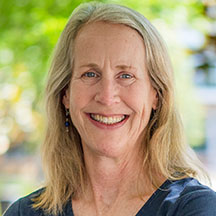 Susan Handy, Distinguished Professor of Environmental Science and Policy, University of California Davis
Susan Handy, Distinguished Professor of Environmental Science and Policy, University of California Davis
Title of Talk — “Shifting Gears: Toward a New Way of Thinking About Transportation”
Abstract — The transportation system in the U.S. has been shaped by a core set of ideas that are embedded in professional practice. These ideas — freedom, speed, mobility, vehicles, capacity, hierarchy, separation, control, and technology — have produced a system in which most people are dependent on driving, with all the negative consequences that entails. Shifting to a system that is both equitable and sustainable requires a shift in thinking on the part of the transportation profession. In this talk, Handy takes a critical look at the way of thinking that, for the last century, has shaped our transportation system and consider the ways in which that thinking is — and is not — shifting.
Bio — Handy is Director of the National Center for Sustainable Transportation at the UC Davis, where she also chairs the graduate program in Transportation Technology and Policy. Her research focuses on strategies for reducing automobile dependence, including bicycling as a mode of transportation. She is the author of Shifting Gears, published by MIT Press. Read more >>>
6:30 p.m. — Reception (East Terrace, second floor)
FRIDAY, MAY 17
8:15-9 a.m — Check-in & Refreshments (Room 605)
9-9:30 a.m. — Welcome & Introductions
Nicholas Jones, Executive Vice President, University of Illinois System
Marie Lynn Miranda, Chancellor, University of Illinois Chicago
Madhu Khanna, Alvin H. Baum Family Fund Chair & Director, Institute for Sustainability, Energy, and Environment
Eleftheria Kontou, Assistant Professor, Civil & Environmental Engineering, University of Illinois Urbana-Champaign
9:30-10:30 a.m. — Plenary Address
 Jessika Trancik, Professor, Institute for Data, Systems, and Society, Massachusetts Institute of Technology
Jessika Trancik, Professor, Institute for Data, Systems, and Society, Massachusetts Institute of Technology
Title — “Who will Benefit from the Decarbonization of Transportation? Examples from Research on Vehicle Electrification”
Abstract — Decarbonizing the transportation system will require a substantial investment in technological change. How can we ensure that this major transition benefits everyone? Trancik will present several insights from research that can help identify ex ante which technological changes might bring about more (or less) equitably distributed benefits. This research involves understanding and quantitatively modeling human behaviors and technological constraints, to reveal widely beneficial decarbonization solutions. The examples discussed will focus in particular on vehicle electrification and the adoption potential of electric vehicles.
Bio — Trancik’s research examines the dynamic costs, performance, and environmental impacts of energy systems to inform climate policy and accelerate beneficial and equitable technology innovation. Her projects focus on all energy services including electricity, transportation, heating, and industrial processes. This work spans solar energy, wind energy, energy storage, low-carbon fuels, electric vehicles, and nuclear fission among other technologies. Read more >>>
10:30-10:45 a.m. — Break
10:45 a.m.-12:15 p.m. — Parallel Morning Sessions
Session 1A: Equity Bottlenecks in Sustainable Transportation Systems (Room 603)
- Focus: How can we achieve equity in today’s transportation systems? How do different users and developers of transportation systems justify costs and benefits associated with transportation in their sectors, and how do these facilitate or create obstacles in equitable transportation systems? How are diverse voices and perspectives engaged in decision-making at the community, state, and national levels?
- Panelist Remarks: 10:45-11:45 a.m.
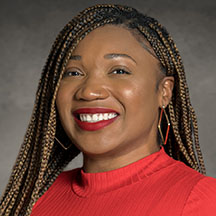 Nina Idemudia, CEO, Center for Neighborhood Technology
Nina Idemudia, CEO, Center for Neighborhood Technology
A native Detroiter, Idemudia understands firsthand how the built environment shapes the lives of society’s most vulnerable. This fuels her passion for empowering people to be change agents through urban planning. Previously, she was Chicago Recovery Plan Director for the city’s Department of Planning and Development, where her primary focus was to ensure equitable grant distribution across 11 critical program initiatives supporting economic revival. Read more >>> Jane Lin, Professor, Civil, Materials, and Environmental Engineering, University of Illinois Chicago
Jane Lin, Professor, Civil, Materials, and Environmental Engineering, University of Illinois Chicago
Lin’s research interest lies in sustainable transportation with a focus on environmental sustainability analysis and design of transportation systems via advanced data analytics and systems modeling. She focuses on mobile source emissions and air quality modeling and health exposure analysis, green freight transportation and logistics, and sustainable emerging mobility enabled by information technology. She is the Editor of Transport Policy. Read more >>> Sophie Young, Manager, Environmental Justice and Equity, Electric School Bus Initiative, World Resources Institute
Sophie Young, Manager, Environmental Justice and Equity, Electric School Bus Initiative, World Resources Institute
Young is an environmental and community planner. She works on advancing a just transition for school bus electrification, advising teams on equitable research methods, stakeholder engagement, and program design. She previously led a climate and environmental justice grant program, Transformative Climate Communities, at the California Strategic Growth Council. She also was an environmental planner on transportation and land use projects. Read more >>>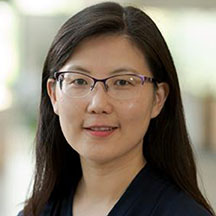 Yan (Joann) Zhou, Group Manager, Vehicle and Energy Technology & Mobility Analysis, Argonne National Laboratory
Yan (Joann) Zhou, Group Manager, Vehicle and Energy Technology & Mobility Analysis, Argonne National Laboratory
Zhou assesses energy and emission impacts of advanced vehicle, fuel, and mobility technologies. She also analyzes market and technology trends for transportation electrification in the U.S. and China. Her research interests include vehicle technologies, alternative fuels, freight modes, energy systems/technologies, mobility trends, and behaviors (e.g., travel and refueling from local, regional, and national system perspectives). Read more >>>
- Group Discussion: 11:45 a.m.-12:15 p.m.
Session 1B: What Sustainable Transportation Opportunities Contribute to Increasing Equity? (Room 613)
- Focus: Can the transition to sustainable transportation be an opportunity to introduce more equity into society? Are these opportunities specific to certain types of communities? How do such opportunities vary across urban vs. rural regions? Do sustainable transportation options potentially impose higher barriers for socially disadvantaged groups? Can the lessons learned at the local level be scaled regionally or nationally? Would economies of scale help us achieve these opportunities?
- Panelist Remarks: 10:45-11:45 a.m.
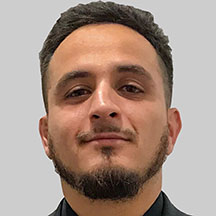 José Acosta-Córdova, Transportation Justice Program Manager, Little Village Environmental Justice Organization
José Acosta-Córdova, Transportation Justice Program Manager, Little Village Environmental Justice Organization
Acosta-Córdova leads the Transportation & Mobility Justice program at LVEJO, which works on issues related to freight, EJ, and mobility justice at the local, state, and national levels. He is also the co-chair of the Transportation Equity Network (TEN) in Chicago. He is currently a Ph.D. candidate in Geography & GIS at the University of Illinois. He was raised by social justice activists, and has been around the EJ movement since he was 3 years old. Read more >>>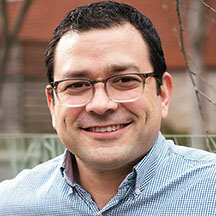 Sergio Castellanos, Assistant Professor of Civil, Architectural, and Environmental Engineering, University of Texas Austin
Sergio Castellanos, Assistant Professor of Civil, Architectural, and Environmental Engineering, University of Texas Austin
Castellanos leads the RESET (Rapid, Equitable & Sustainable Energy Transitions) Lab, analyzing just decarbonization pathways for emerging economies, data-driven sustainable transportation approaches, and equitable local energy transitions. His interdisciplinary projects have received international recognition, and recently he received the 2023 Cesar Chavez “Si Se Puede” Award for his transformative work to help better communities in Austin. Read more >>>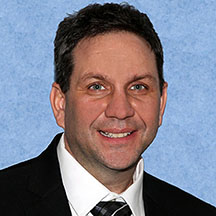 Jason Osborn, Director, Office of Intermodal Project Implementation, Illinois Department of Transportation
Jason Osborn, Director, Office of Intermodal Project Implementation, Illinois Department of Transportation
Osborn was named to his current position in 2022 after more than 20 years in the transportation field. Prior to joining IDOT, he worked at Metra, leading system and performance analytics, Title VI conformity and GIS development. His areas of expertise include long-range planning, project management, transportation policy, economic development, and public administration. Read more >>>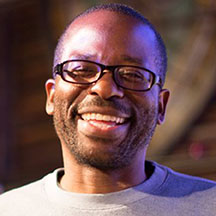 Olatunji Oboi Reed, President and CEO, The Equiticity Racial Equity Movement
Olatunji Oboi Reed, President and CEO, The Equiticity Racial Equity Movement
Reed works globally as a racial equity tactician, increased mobility advocate, and racial justice activist. His passion lies at the intersection of community, culture, and health. With an extensive background in both nonprofit management and corporate social responsibility, he is most proud of his work to create a diverse coalition of people, organizations, and businesses all working together to achieve racial equity and mobility justice across the City of Chicago. Read more >>>
- Group Discussion: 11:45 a.m.-12:15 p.m.
12:15-1:30 p.m. — Lunch Break (Room 301) and Exhibits from Community Groups, Non-Governmental Groups, and Industry Representatives (Room 605)
1:30-3 p.m. — Parallel Afternoon Sessions
Session 2A: Putting Potential Solutions into Operation: Startups and Local Initiatives (Room 603)
- Focus: What is the role of startups and social entrepreneurship in the transition toward sustainable transportation systems? What are important equity and accessibility considerations for startups implementing transportation solutions in disadvantaged communities? How can sustainable transportation startups partner with private and public investors that have sustainable financing targets? What are key obstacles startups face when addressing community needs in sustainable transportation? Are there innovations on the horizon that would address these barriers?
- Panelist Remarks: 1:30-2:30 p.m.
 Robert Blake, Executive Director, Native Sun Community Power Development
Robert Blake, Executive Director, Native Sun Community Power Development
Blake is the owner of Solar Bear, pronounced Gizis-o-makwa in Ojibwe, a solar development company located in Minneapolis, and the Executive Director of Native Sun, a Minneapolis nonprofit. He is a tribal citizen of the Red Lake Nation. His passion is spreading the word about renewable energy through communication, cooperation, and collaboration. Read more >>>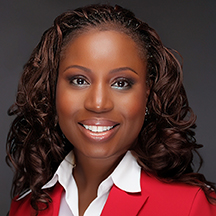 Shelley Francis, Co-Founder and Managing Partner, EVNoire
Shelley Francis, Co-Founder and Managing Partner, EVNoire
With EVNoire, an award-winning, tech consultancy working on electric, connected, shared, and autonomous vehicle solutions, Francis uses her expertise to integrate e-mobility best practices, diversity, equity, inclusion, and public health into the transportation sector. She founded EVHybridNoire, the nation’s largest network of diverse EV drivers and enthusiasts, focused on increasing EV adoption and awareness in under-represented communities. Read more >>> Edith Makra, Director of Environmental Initiatives, Metropolitan Mayors Caucus
Edith Makra, Director of Environmental Initiatives, Metropolitan Mayors Caucus
Makra directs sustainability initiatives for the Caucus, a coalition of 275 mayors in the greater Chicago region. She developed the Greenest Region Compact, a consensus sustainability pledge now adopted by 159 Chicago-area communities — the largest regional municipal sustainability collaborative in the U.S. She led creation of the Chicago region’s first climate action plan and is now leading municipalities to prepare for transportation electrification. Read more >>>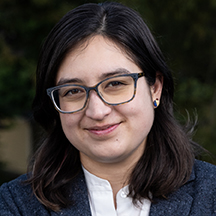 Madeline Zhu, Policy Advisor, SMART Grants Program, U.S. Department of Transportation
Madeline Zhu, Policy Advisor, SMART Grants Program, U.S. Department of Transportation
Zhu leads the programmatic work for the Strengthening Mobility and Revolutionizing Transportation (SMART) Grants Program, a $500 million discretionary grant program investing in transportation technology demonstrations, which is operated out of the Office of the Secretary of Transportation, Research. SMART was created in the Bipartisan Infrastructure Law and is the nation’s largest investment in smart cities and communities. Read more >>>
- Group Discussion: 2:30-3 p.m.
Session 2B: Catalyzing New Solutions (Room 613)
- Focus: Where should communities look for funding or government partnerships to implement innovative and sustainable transportation infrastructure? How do we make sure that funding is available to historically disadvantaged communities and that funded projects represent community needs? Shifting gears, is the workforce ready to support the deployment of sustainable transportation infrastructure? What type of initiatives are needed to tackle labor shortages or skill gaps? How do we increase diversity in the transportation workforce?
- Panelist Remarks: 1:30-2:30 p.m.
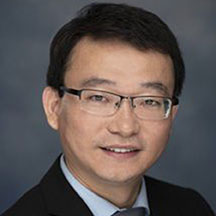 Can Chen, Associate Professor, Andrew Young School of Policy Studies, Georgia State University
Can Chen, Associate Professor, Andrew Young School of Policy Studies, Georgia State University
Chen founded and leads GSU’s Infrastructure Finance & Policy Lab, and his research expertise is in transportation finance and policy. He has published a book on innovative infrastructure finance and over 40 peer-reviewed articles and chapters. Chen serves on the standing committee of the Transportation Economic and Finance of Transportation Research Board and on the executive board for the Association of Budgeting and Financial Management. Read more >>> Celeste Chavis, Interim Chair & Professor, Transportation and Urban Infrastructure Studies, Morgan State University
Celeste Chavis, Interim Chair & Professor, Transportation and Urban Infrastructure Studies, Morgan State University
Chavis, a licensed Professional Engineer, does research focused on transportation operations, safety, and performance metrics for multimodal transportation systems through an equity lens. Her recent work includes topics on food access, public transit operations, pedestrian and bicycle safety, and travel behavioral modeling. She also recently co-chaired Baltimore Mayor Brandon Scott’s Transportation and Infrastructure Transition Committee. Read more >>>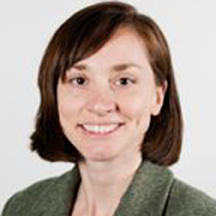 Kate Lowe, Associate Professor, Urban Planning and Policy, University of Illinois Chicago
Kate Lowe, Associate Professor, Urban Planning and Policy, University of Illinois Chicago
Lowe studies transportation at the intersection of policy, funding, and mobility justice. Her work examines how varied stakeholders and transportation policies interact across different levels of government and how this impacts transportation investments and racial inequities. She also conducts qualitative research on lived experiences of mobility and accessibility for low-income populations and Black and Brown communities. Read more >>>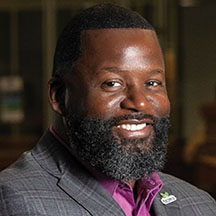 Courtney Carson, Associate Vice President, External Affairs, Richland Community College
Courtney Carson, Associate Vice President, External Affairs, Richland Community College
The Rev. Carson also serves as an ordained Minister at Love Fellowship Christian Church, State Spokesperson for the Rainbow Push Coalition, President of the Southside Improvement Association, Political Strategist, and the creator of the award-winning trauma-sensitive workforce training program known as EnRich, which has helped more than 3,000 adults in the Decatur community earn at least 30% higher than the average living wage. Read more >>>
- Group Discussion: 2:30-3 p.m.
3-3:15 p.m. — Break (Room 301)
3:15-4:45 p.m. — Wrap-up & Visioning
- Goal:Outcomes and lessons from each panel are introduced and discussed in turn, including displaying the visualization of the session notes. Research gaps and open questions from the four panels will be discussed, and participants will be asked to suggest directions for future research.
4:45-5 p.m. — Closing